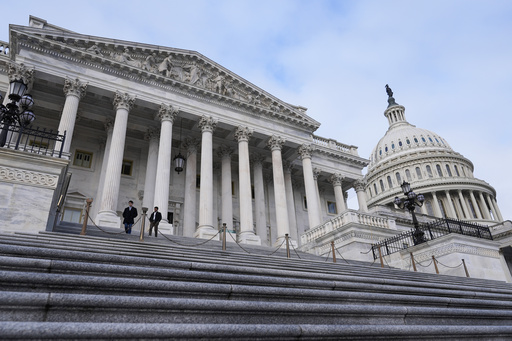
In a significant move, the House of Representatives has approved a bill aimed at granting full Social Security benefits to millions, marking a major step towards potential enactment into law. On Tuesday, the legislation garnered bipartisan backing with a vote of 327 to 75, during what is recognized as the lame-duck session of Congress. The bill is now set to progress to the Senate, where its approval remains uncertain despite a strong backing.
So, what exactly does this proposed legislation entail? This comprehensive bill seeks to eliminate two federal policies—the Windfall Elimination Provision and the Government Pension Offset—that restrict Social Security benefits for nearly 2.8 million individuals, as per information from the Congressional Research Service. These provisions generally reduce benefit amounts for two specific categories: individuals who also receive a pension from non-Social Security jobs and surviving spouses of Social Security beneficiaries who draw their own governmental pension. The policies have disproportionately impacted employees within state, local, and federal government roles, including teachers, firefighters, and police officers, as highlighted by legislators and advocates. If enacted, the bill would remove these provisions, potentially boosting Social Security payments for these vulnerable groups.
However, what would the financial implications of expanding these benefits be? The budgetary consequences are substantial, with the Congressional Budget Office estimating an increase in federal deficits of approximately $195 billion over the next decade. This raises concerns about additional pressure on the Social Security Trust funds, which are anticipated to face challenges in covering full benefits by 2035. Some conservative members of the House expressed opposition to the bill due to its financial burden. Nonetheless, its proponents emphasized the importance of equity in the system. According to Representatives Garret Graves from Louisiana and Abigail Spanberger from Virginia, who are the primary sponsors of the bill in the House, “For over 40 years, the Social Security trust funds have been artificially propped up by stolen benefits that millions of Americans paid for and that their families deserve. The time to put an end to this theft is now.”
Looking ahead, the Social Security bill has gained support from 63 senators, an essential figure since most legislation in the Senate requires 60 votes for passage. Senators Sherrod Brown from Ohio and Susan Collins from Maine, who are the primary sponsors in the Senate, have urged their colleagues to prioritize the bill’s consideration. However, with a busy legislative agenda in the upcoming weeks encompassing government funding, disaster relief, and an obligatory defense bill, time may be a limiting factor in the Senate’s ability to address this proposal. Should the Senate successfully pass the bill, it would then be presented to President Joe Biden for approval. If signed into law, the new provisions would come into effect for benefits due after December 2023. Conversely, if the Senate fails to pass the legislation by January 3—the start of a new Congressional session—the bill would lapse, and its advocates would need to initiate a new effort.
